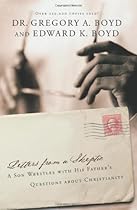Today, I was looking for a receipt for a watch that was supposed to be repaired under warranty, but that I got a bill for the repair. While looking for that receipt, I found several other receipts and I was quite surprised by what I found. I probably read more books this year than I have ever read in any year of my life.
Here are the books that I remember reading this year (the receipts helped me to remember), in no particular order. Just because I admit to reading a book doesn't mean that I recommend that you read it. Some of those books were a waste of my time. However, all of the running books were excellent if you're a runner. CS Lewis has some works that are better than others, but the two I read this year are among his best non-fiction. If you're interested in the conditionalist position about hell, nobody sets it forward more thoroughly than Edward Fudge. And I had to know what all the Katniss Everdeen fuss was about.
- The Hunger Games - Suzanne Collins
- Catching Fire - Suzanne Collins
- Mockingjay - Suzanne Collins
- The Last Lecture - Randy Pausch
- The Fire That Consumes - Edward Fudge
- Hell: A Final Word - Edward Fudge
- The Churches of Christ in the 20th Century: Homer Hailey's Personal Journey of Faith - David Edwin Harrel, Jr. (2nd time through)
- Change Agents and Churches of Christ - William Woodson
- Daniels' Running Formula - Jack Daniels (3rd time through)
- Advanced Marathoning - Peter Pfitzinger and Scott Douglas (maybe 4th time?)
- The Problem of Pain - CS Lewis
- Mere Christianity - CS Lewis (3rd time through)
- What Must the Church of Christ Do To Be Saved? - Leroy Garrett
- Piloting the Strait - Dave Miller (4th or 5th time through)
- Free As Sons - Cecil Hook
- Healthy Intelligent Training: The Proven Principles of Arthur Lydiard - Keith Livingstone
- How To Win Friends And Influence People - Dale Carnegie (I didn't get all the way through this book this year, but I have read this book every year for several years, except this year.)
- Letters From a Skeptic - Dr. Gregory A. Boyd and Edward Boyd
- Surprised by Hope - NT Wright (I just started this one, but I will finish it before year's end.)
The best book I read this year is Letters From A Skeptic by Dr. Gregory A. Boyd and Edward Boyd. I would classify that as a "must read". I was both challenged and touched by that book. It's also very readable. Greg Boyd has earned my respect because he is not afraid of any question and he has an honesty that is very refreshing. I don't agree with a lot of his positions (especially his radical pacifism), but I respect him greatly.
What are you reading? What do you recommend for me for next year? Please leave comments with recommendations! Don't assume I've already read it! Strengths from my list.... Contrasting theological views, mostly good books. Weaknesses from my list... No science or technology books, no classic fiction. So, please, help me to improve for next year!
On my list for next year are these. Please add to the list. I'd love to get through 20 books next year.
- A Year of Biblical Womanhood - Rachel Held Evans
- The Abolition of Man - CS Lewis
- Walking by Faith - Roy Cogdill
- The Last Word - NT Wright
- Born to Run - Christopher McDougall (I know... How have I NOT read this yet?)
In addition to those books, I heavily emphasized my Bible Study in the Psalms, Gospels (especially John), and the books of Acts and Romans. I'd like to do more in the Old Testament next year. Also, I read most every article published by Eastside church of Christ in Athens, AL (private email list) and Pepper Road church of Christ (on their website) in Athens, AL. I also followed Patrick Mead's tentpegs blog and Greg Boyd's Reknew.org blog and recently added Rachel Held Evans instead of Al Maxey's Reflections (I just found Maxey's tone too vitriolic for my taste at times).
That's about all I have time for.

